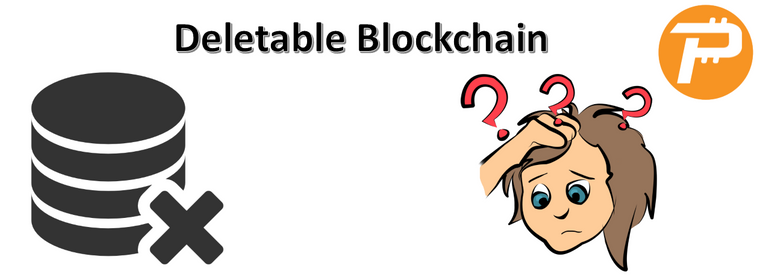Pascal Coin in a nutshell
I heard about Pascal Coin (PASC) years back but only recently, I observed some buzz as they’ve started some promotional activities. The coin is listed on CoinMarketCap at 889 position currently. Pascal is not a very new cryptocurrency. The project was launched in 2016 and they didn’t do an ICO or pre-mine. It was a ‘fair launch’ project. Pascal Coin is a proof-of-work cryptocurrency and Pascal blockchain has many unique features. The name of the project is really interesting. What’s on your mind? You might be guessing it right! The codes of the project were written entirely in Pascal programming language.
Bank account experience
Pascal has a wallet like any other cryptocurrency but Pascal isn't stored directly against your Public Key. Pascal Coins and transactions are stored against a Pascal account (PASA) and that account is stored against your Public Key. This is a big difference with other cryptocurrencies. Now an account comes with a number. It is called PASA number. It just looks like a human-readable bank account number (ex – 1245665-59). So if you want, you can memorize it easily. You can send or receive PASC with that PASA number only. You can obtain a free PASA by simply activating your Blaise Android/iOS wallet. Here is a detailed guide to obtain free PASA. Don't be misguided. There is no airdrop here.
Speed & Fee
Pascal is zero-fee. Okay, this sounds really amazing for a proof-of-work blockchain! Pascal allows a user to make one free transaction per block (almost every 5 minutes). This way, a user gets 288 free transactions per day. This is good enough reason to transact in a hassle-free manner without thinking about transaction cost. What about the speed? The VISA network performs an average of 1700 TPS. Pascal has achieved 1600 TPS on the production network. If you compare with Bitcoin and Ethereum, they have 5 TPS and 25 TPS respectively. Pascal’s goal is to achieve 100,000 TPS and beyond.
Deletable blockchain & infinite scalability
Pascal wants to solve the problems of existing blockchains. Blockchain has addressed many issues of centralized databases but a major issue of any blockchain is ‘storage’. Blockchain is generally immutable but when the transactions keep on increasing for years, the storage of such huge data becomes problematic. A centralized database administrator can delete data of the centralized database and generate free storage space but the same thing can’t happen with a blockchain. Pascal solves this issue by its ‘deletable blockchain technology'. This technology allows Pascal nodes to delete the blockchain beyond the last 100 blocks and it doesn’t impact the security of the blockchain. Pascal network comes with a practical approach of not storing the infinite history and it is the only blockchain which can theoretically run for an infinite time at maximum throughput with constant storage. Infinite scalability? Yes, it is technically achievable by Pascal this way.
Safebox technology brilliance
Safebox technology is a feature of Pascal blockchain from the first version. SafeBox, a new cryptographic data structure, works in tandem with the deletable proof-of-work blockchain. Safebox is an alternative approach to decentralized consensus ledgers. It stores account balance data independently from the blockchain. You can consider blockchain as the ledger here and Safebox as the ledger balance for simple understanding. An examination of the Safebox provides the ‘aggregated proof-of-work’ required for construction of the Safebox without the need for any verification from the blockchain. This allows easy deletion of the blockchain but the historical figure of the blockchain can be retained.
Decentralization at core
Decentralization is the core value of Pascal. There was no pre-mining in Pascal and it is a permissionless blockchain. Pascal has a simplified architecture and it enables Layer-2 protocols to be enveloped within Pascal transactions. Thus it allows the development of varieties of DAPPs. All DAPPs can run independently from each other. All existing platforms process DAPP business logic at Layer-1 but Pascal provides a Layer-2 DAPP business environment.
Zero confirmation transaction
Pascal wants merchant adoption of the blockchain and the cryptocurrency. Pascal has a reliable zero-confirmation scheme. Now, this zero-confirmation is extremely risky and it can lead to ‘double-spend attack’. A double spend attack takes place when a user makes a transaction with the same data of the previously validated transaction. Pascal solves this issue by using Double Spend Alerts (DSA). It is basically a message from the network which alerts the nodes. This is not possible with Bitcoin. For Pascal, it works as there is no UTXO model in use like Bitcoin. Pascal’s simplified account-model makes the game easy.
In-protocol Atomic Swap
Version 5 of Pascal blockchain introduced atomic swap. Atomic swap is a smart-contract technology to exchange any cryptocurrency to another without the intervention of a centralized authority. The swap happens between respective blockchains in a cryptographically secured manner. As per the whitepaper, “an account can be time-locked and hash-locked to a counterparty granting that counterparty the option to take ownership of that account (or the coins within) by simply unlocking the hash-lock within the time-lock period”.
Pascal seems to be an interesting project. We should remember that Pascal is ‘peer-to-peer’ money first and its Layer-1 architecture looks like an extremely scalable financial layer for value transfer and transaction. The use case for payments is quite good considering fast, zero-fee transaction. The absence of scripting complexity and a bank account like feature can work really well for mass adoption. The Layer-2 of Pascal can be used to run any kind of decentralized applications with different business use cases. Blockchain deletion capability is really unique but it comes with some complicated questions also. Scalability of Pascal blockchain doesn’t seem to be an issue. Pascal is trying to find a balance between being ‘money’ like Bitcoin and being an Ethereum competitor in terms of DAPP development and deployment. Pascal has big plans. They have also made a big achievement by bringing private transactions to their network. Pascal’s version 3 added in-protocol PASA and PASC mixing capability. So far, so good. Pascal is fast, secured, scalable and provides fungibility too. Fungibility is an intrinsic character of money. Pascal has miles to go before being called ‘sound money’ but the development of the project is noteworthy. Keep a watch!
Cheers!
[paragism]
Note: The images (if not cited) are created by the author using free vectors.
Useful resources




Your current Rank (146) in the battle Arena of Holybread has granted you an Upvote of 7%